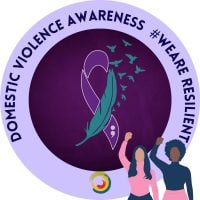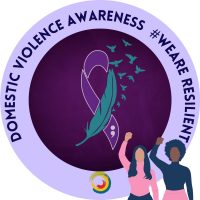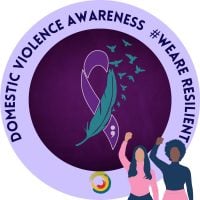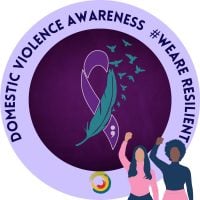Crossroads Turning Points
Drug Rehab Center in Alamosa, Colorado
Crossroads Turning Points in Alamosa, Colorado, is a leading addiction treatment facility providing personalized, evidence-based care for alcoholism, substance abuse, and opioid addiction, with various levels of care including detox, inpatient, outpatient, dual-diagnosis, intensive outpatient, and aftercare support, and accreditation from CARF and SAMHSA.
About
Crossroads Turning Points–Alamosa, located in Alamosa, Colorado, is a comprehensive alcohol and drug rehab facility for adults. With 90 beds, they offer dual diagnosis care through inpatient, outpatient, and aftercare support programs. Crossroads Turning Points–Alamosa stands out by providing dedicated programming for pregnant and postpartum women, adolescents, justice-involved persons, parents, young adults, and individuals with HIV/AIDS.
- Inpatient program: Clients receive medical and mental health assessments, personalized care plans, comprehensive case management, and engage in intensive, trauma-informed individual, group, and family counseling in a private, home-like setting.
- Outpatient program: Promotes long-term recovery through a robust continuum of care aligned with clients' evolving needs, including intensive outpatient (IOP), standard outpatient, sober living/residential care, and aftercare support.
- Specialized programming: Tailored treatment options are available for pregnant and postpartum women, adolescents and young adults, justice-involved persons, parents, persons with HIV/AIDS, and those with co-occurring addiction and mental illness.
Crossroads Turning Points–Alamosa is state-licensed and accredited by CARF and SAMHSA. They accept private insurance, Medicaid, and self-pay, with sliding scale payment assistance available to ensure accessibility for those seeking treatment.
This facility treats a wide range of addictions, including alcoholism, substance abuse, opioid addiction, and drug addiction, as well as mental health concerns. Treatment methods encompass detoxification, inpatient and outpatient care, dual-diagnosis treatment, intensive outpatient programs, and aftercare support, tailored to each individual's specific needs.
Genders
Ages
Modality
Additional
Accreditations
SAMHSA

CARF
The Commission on Accreditation of Rehabilitation Facilities (CARF) is a non-profit organization that specifically accredits rehab organizations. Founded in 1966, CARF's, mission is to help service providers like rehab facilities maintain high standards of care.
Conditions and Issues Treated
Recovering from substance abuse is an essential part of a healthy life for many people. It’s a long and challenging process, but it can be worth it in the end if you manage to get through all parts. Detoxifying your body, rehabilitation after that time passes or when needed (depending on what type), and then recovery while also receiving therapy support throughout this entire process.
A standard route to starting recovering from substance abuse and addiction is through a detoxification center. There you can completely heal your body and mind and continue on the path of recovery without feeling any of the lingering effects of substances.
Within the past decade, opioid addiction has become a nationwide epidemic. The United States hosts one of the world’s highest rates of opioid use or abuse and has one of the highest rates of opioid-related deaths. In the United States, opioid drugs are classified as Schedule II-IV controlled substances due to their highly addictive properties and potential for abuse. These include morphine, opium, heroin, oxycodone, hydrocodone, methadone, and fentanyl. Physicians usually prescribe opioids to help control pain.
Over time, opioid users develop a tolerance for the drugs, which makes it difficult, if not impossible, to function without them. In turn, opioid users often resort to illicit means of obtaining the drugs. These means can include drug dealers, friends, and family members who do not have legitimate prescriptions for the drugs. Opioid addiction can quickly lead to heroin use, especially those seeking more intense highs than prescription opioids offer. Due to the high risk of overdose, heroin users are at a much higher risk for illness and death.
A person who struggles with addiction and a mental health condition suffers from a dual diagnosis. This means that they have two issues that must be treated. The specific mental health issues that the patient at Crossroads Turning Points might have include but are not limited to:
- Depression
- Bipolar Disorder
- Anxiety
- PTSD (Post Traumatic Stress Disorder)
The specific addiction issues that the patient might have include but are not limited to:
- Alcoholism
- Drug Addiction (i.e., Cocaine, Meth, and other stimulants, Marijuana, and Ecstasy)
The combination of the two illnesses can be tough to treat. Taking care of one or the other is tough, and taking care of both cannot be done alone. A patient who receives dual diagnosis treatment will be given the best chance at becoming sober.
Levels of Care Offered
This center offers a variety of custom treatment tailored to individual recovery. Currently available are Detox, Dual-Diagnosis, Inpatient, Intensive Outpatient, Outpatient, with additional therapies available as listed below.
Detoxification is a critical first step in treatment for drug addiction. Drug detoxification helps the individual withdraw from the drug by providing a controlled environment where symptoms can be managed through medication and close observation. Detoxification is an inflection point where the individual can get on a recovery track, but it’s also one of the most dangerous points in the recovery process.
In addition to going through physical withdrawal from certain drugs, a detox program also provides the individual with drug testing to monitor their progress. This way, if the individual is not ready for sobriety (such as if they relapse), the treatment professionals can catch it early on and use that opportunity to help re-orient the individual towards recovery.
Inpatient treatment centers offer a safe, secure, and often medically supervised environment for drug or alcohol-addicted individuals. Many of these facilities are equipped to provide detoxification, treatment for co-occurring mental health disorders, and aftercare programs.
The patient typically spends 28 to 30 days at the facility and will receive extensive drug counseling. They will also learn how to live without drugs and how to make the right decisions in life.
Intensive Outpatient Programs are similar to partial hospitalization, but they don’t require the patient to go home each night.
This means that while they have to attend meetings and receive other types of help at the facility, addicts are allowed to keep their jobs or continue with school without having to miss their classes or work opportunities. This is a great option for those who can’t take time away from their jobs or schedules to attend a treatment program.
During this type of program, the addict will be required to meet with counselors and other types of professionals throughout the day. This will help them stay on track and prevent them from relapsing after they leave the facility.
An outpatient treatment program is set up to help with alcohol or drug addiction or a co-occurring disorder. The treatment must attend the treatment facility for their therapy and other programs but return home each night. The frequency of mandatory attendance decreases after much of the treatment program is complete. The treatment programs are monitored by the treatment facility and case managers who work for a judge or judge’s office. A treatment program may be performed out of a treatment facility, treatment clinic, or treatment center.
The benefits of outpatient treatment programs are many. One of the most beneficial treatment programs is that it allows treatment for clients who cannot afford or may not be able to attend treatment at a treatment facility, treatment center, or treatment clinic full-time. Another benefit of treatment programs is that they reduce crime rates because treatment allows people to treat their addiction.
Therapies & Programs
Group therapy sessions provide recovering addicts with a chance to cope with everyday situations that many face. Group therapy sessions are held in rehab facilities, clinics, churches or community centers that offer drug addiction treatment.
People who attend these groups are encouraged to voice their feelings and support other addicts in recovery. This helps group members strengthen their own recovery program while cheering on others who are struggling with sobriety.
Trauma therapy allows them to work through past trauma to have peace of mind and begin down the road of sobriety. The therapist will work with the individual to help them understand their past and present relationships. Patients may often believe that something is inherently wrong with them or they are unworthy of love. The therapist aims to correct these negative feelings and behaviors by helping the person realize that their actions do not reflect who they truly are.
Payment Options Accepted
For specific insurance or payment methods please contact us.
Additional Details
Specifics, location, and helpful extra information.
Alamosa, Colorado 81101 Phone Number(719) 589-5176 Meta DetailsUpdated April 15, 2024
Staff Verified
Patient Reviews
There are no reviews yet. Be the first one to write one.
Alamosa, Colorado Addiction Information
The Centennial State has slipped to a ranking of 12th in the country for drug abuse. Each year around 24% of the state's population uses illegal drugs while nearly 5% of its population abuses alcohol. Substance-related deaths in Colorado were responsible for 15.12% between 2008 and 2017. Fortunately, Colorado drug and alcohol addiction treatment are available to help a person overcome addiction.
Alamosa County has one of the highest rates of heroin use in the state of Colorado. Over 15% of the population in Alamosa, Colorado has reported abusing prescription medications. In Alamosa, the number of opioid-related deaths increased from six in 2016 to 12 in 2017. There are several drug rehab centers in Alamosa. Some of the most common treatments include inpatient and outpatient programs, as well as 12-step programs and support groups.
Treatment in Nearby Cities
- Granby, CO (182.5 mi.)
- Telluride, CO (111.6 mi.)
- Westminster, CO (171.2 mi.)
- Rangely, CO (241.6 mi.)
- Dillon, CO (151.2 mi.)
Centers near Crossroads Turning Points
The facility name, logo and brand are the property and registered trademarks of Crossroads Turning Points, and are being used for identification and informational purposes only. Use of these names, logos and brands shall not imply endorsement. RehabNow.org is not affiliated with or sponsored by Crossroads Turning Points.







